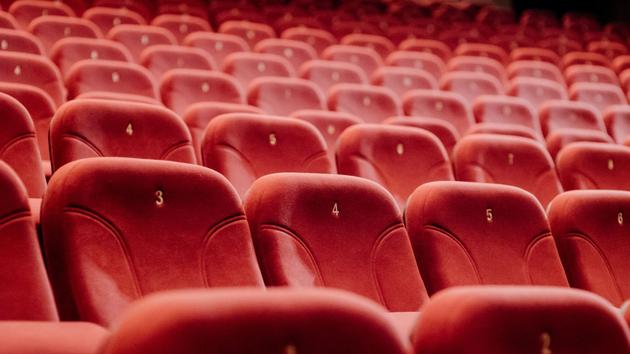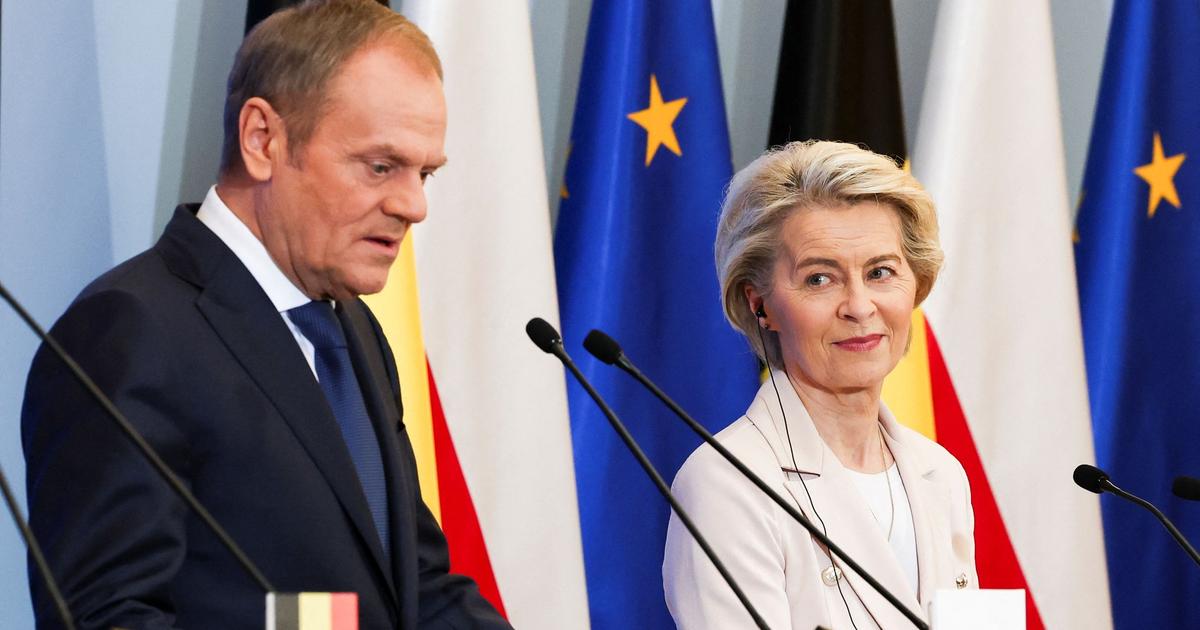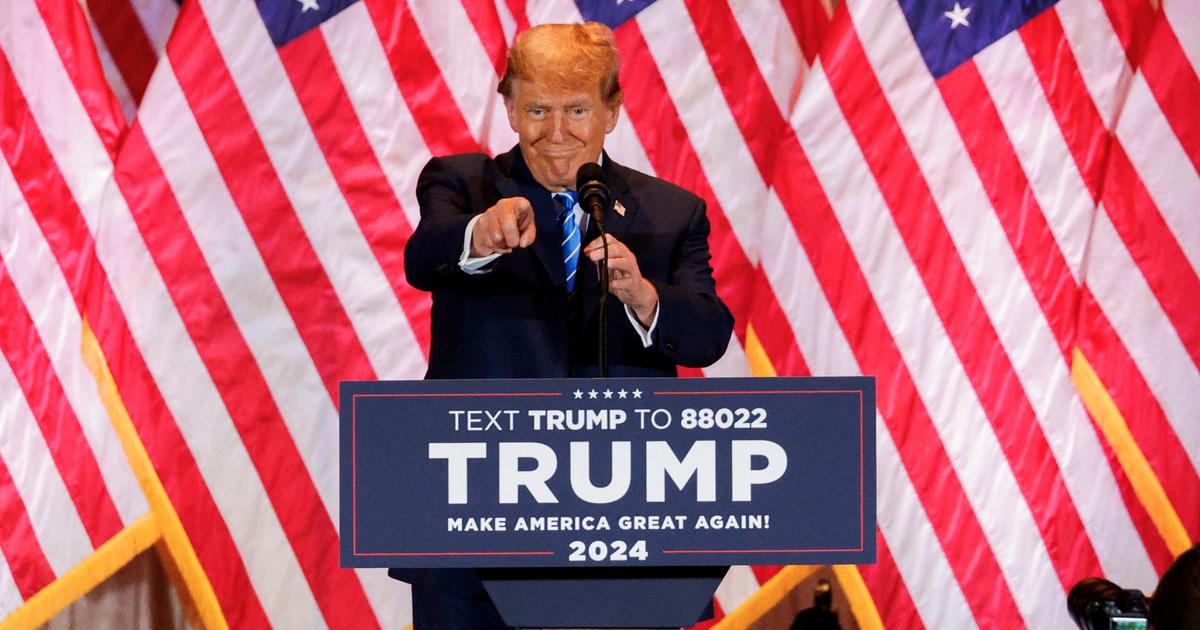Writer, playwright and director, Gérald Garutti directs the Center for the Arts of the Word and teaches at Sciences Po.
To discover
Michel Houellebecq: "A civilization which legalizes euthanasia loses all rights to respect"
Are you a victim or a bastard?
Accomplice or hero?
Prosecutor or executioner?
Nothing?
Or a witness, at least?
Not yet?
Impossible.
You have to be something - be careful, we never said anyone.
Welcome to the era of the universal mold.
So here we are reduced to the first degree of dramaturgy. From the health crisis to the preliminaries of the presidential campaign, from business to various facts, today in our country the media debate boils down to seven capital clichés - victim, bastard, accomplice, hero, prosecutor, executioner, witness. A closed game with seven characters, seven imposed figures around which the debate never ceases to revolve, which he systematically summons to dramatize any topicality: to present any information in the form of a plot where archetypes clash; to capture attention by emphasizing the issue.
These are in fact now the four laws of our national debate: universal reduction to stereotypes;
mandatory distribution in exclusive categories;
the illusion of choice and the imposition of the role;
the compulsory use of a minimum of key figures to publicize any event.
1. Universal formatting.
Denying the individual, reducing him to a single dimension, assigning him to a standardized identity, such is the great game of collective powers - State, media, public opinion, social networks.
Thus, any Covid expert is immediately tagged reassurance or catastrophist.
Human complexity is the enemy.
Singularity is a danger.
The standard model, a security.
Consequence: we are all stereotypes.
2. The categorial imperative.
The roles are decided.
Assigned en masse.
Distributed in slices.
Locked in blocks.
So, the French, sixty-six million prosecutors or sixty-six million victims?
It's all one or all of the other - and in this case it doesn't matter whether you're wrong with Xavier Bertrand or right with Emmanuel Macron.
Consequence: we are all monoliths.
Denying the individual, reducing him to a single dimension, assigning him to a standardized identity, such is the great game of collective powers.
3. Imposition of the roll. Freedom is reduced to the choice of the assigned uniform. Choose your camp comrade. Better - take on your role, follower. Integrate yourself into the scenario. Go back to your hut. Melt into the character that is intended for you. The label that designates you. The cliché that defines you. Since we are at war, you are heroes - the presidential anaphora equals role assignment. Consequence: we are all archetypes.
4. The logic of quotas.
at).
A fact only becomes mainstream if it plays the game of seven clichés.
b).
To exist in the media, any event must mobilize at least three of the seven clichés.
Without this quorum, it will remain invisible.
c) Never two without three: if two pictures are already there, a third will emerge to boost the action.
For example, the conflict between prosecutor and executioner calls for the intervention of the hero.
To save the French refractory to the sanitary state, here is Chloro King, alias Professor Raoult as a salutary hero.
Consequence: we are all antagonists.
Such is the dramaturgy which today determines the staging of information.
At its heart, the seven capital clichés - seven roles required to appear in our national drama.
French, one more effort and you will be common places.
1. The bastard messes up. Vices and abuse - the horror. Pervert, violent, rapist, the bastard corrupts, abuses, corrodes, destroys. Drunk with omnipotence, to satisfy his impulses he sets off crimes, which he enjoys with perfect impunity. Long time. Long time. Protected by his power. Its prestige. His alliances. His arrogance. His court. Omerta. Celebrated godfather, without scruples or empathy, he transgresses the maxims he professes. Domination, perversion, devastation. His enjoyment above all. Emotions provoked: fascination and repulsion.
2. The Victim suffers. Devastation and occultation - shock. It does not go through. The trauma. From the torture the bastard inflicted on him, the victim still suffers. Bruised for life, it buried its destruction. Who, from within, devours her. To the point of feeling guilty for the horror suffered. Her life afterwards, she spends it fighting against this evil which still damages her - violence, suffering, shame, loneliness. Survival above all. Emotion provoked: compassion.
3. The Accomplice covers.
Connivance and complacency - shame.
With the bastard, the accomplice is involved.
By interest.
Between oneself.
Cowardice.
Corruption.
Guilty by marriage, he breaks his silence, he organizes his blindness.
Sworn, for the victim, he did not know.
Well, yes, he knew, but he didn't believe it.
Did not dare.
Could not.
And the presumption of innocence, then.
And then, you have to keep the machine running.
Save the facade.
The institution above all.
Emotion aroused: disgust.
So, the French, sixty-six million prosecutors or sixty-six million victims?
It's all one or the other
4. The Witness reveals. Exposure and explosion - the scandal. Upset by the mute ordeal of the victim, the witness denounces the bastard. Exhume his turpitudes. Publish misfortune. To bring out the truth too long kills. So that justice is finally done. To put an end to impunity. So that fear changes sides. Even after all this time. He can finally speak. Light above all. Emotion provoked: sympathy.
5. The Prosecutor incriminates. Indignation and condemnation - the stake. The prosecutor accuses. Overwhelmed. Fustige. Stigmatizes. Grand inquisitor, he invective by reflex and condemns on principle. He does not judge on pieces, he tears to pieces. Because he knows. The proof, it turns in a loop on the Internet. So he vomits. He scolds. He annihilates. He cancels. All bastards - except my network. Bashing above all. Emotion provoked: anger.
6. The Executioner oppresses. Torture and dictatorship - the plague. The executioner represses. Its reality? The police state. Its truth? Tyranny and infamy. His method? Keep an eye on and punish. His good pleasure? Enslaving and causing suffering. His first instinct? Club and ban. His last end? Liquidate or let die. He has the arrogance of privilege and the arrogance of a clear conscience. His triptych: indignity, inhumanity, irresponsibility. Oppression above all. Emotion aroused: hatred.
7. The Hero saves. Dedication and surpassing - sacrifice. The hero engages for others. Exposing himself to danger. Give his life. With courage. Self-denial. He faces the catastrophe. Waged war - even in the rear. For the survival of the country. For the defense of the fatherland. Cataclysm, terrorism or pandemic, it stands up against History and before men - even if they immediately forget it. Whatever it costs him, he will not let go. Salvation above all. Emotion aroused: admiration.
So these are the seven capital snapshots of our current media debate.
Less heady than the seven ancestral sins, but just as canonical and more irremediable by the (dis) definitive qualification they impose.
Less open than the game of the seven families.
Less tasty than The Good, the Bad and the Ugly, where, by virtue of humor alone, "the world is divided into two categories: those who have a loaded pistol and those who dig."
In our great national story, against the clichés of modern casting, I advocate a dramaturgy of complexity.
An art of telling our time by doing justice to its multitudes.
No, seriously, our world does not fall exclusively into seven categories. Except to resign oneself to the imposition of ready-to-play. The conformism of stereotypes. Crushing into categories. This is a plea for multiple identities - against radical reductionism. At stake, nothing less than our freedom. Our truth. Our humanity. To what extent are we still able to invent ourselves without being reduced to characters? To write our history instead of being subjected to it? To choose us in the process of becoming, in the flow of life?
To achieve this, we need to reconnect with the “spirit of complexity”, which tells us: “things are more complicated than you think” (Milan Kundera, The Art of the Novel). The human being too. This is why, in our great national story, against the clichés of modern casting, I advocate a dramaturgy of complexity. An art of telling our time by doing justice to its multitudes.















